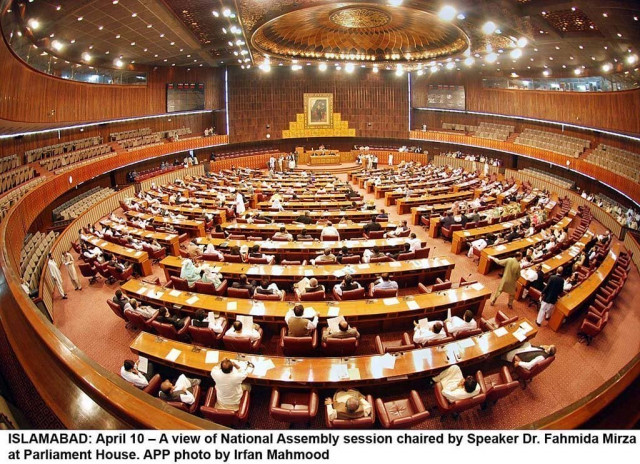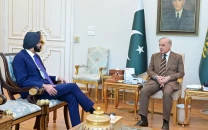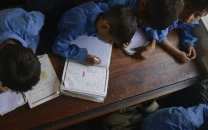Debate on budget 2020-21 to begin in National Assembly today
PML-N senior leader Khawaja Asif is expected to open the debate

A file photo of the National Assembly of Pakistan. PHOTO: APP
According to parliamentary tradition, the opposition leader starts debate on budget but since the Pakistan Muslim League-Nawaz (PML-N) President and the Opposition Leader in NA, Shehbaz Sharif has tested positive for Covid-19, he would not be present in the assembly to initiate the debate.
In the absence of the opposition leader, the PML-N senior leader Khawaja Asif is expected to open the debate and after his speech, other nominated members will take part in the debate.
Federal Minister for Industries Hamad Azhar, who had presented the Pakistan Tehreek-e-Insaf (PTI)-led government budget, will conclude the budget debate after the end of the discussion.
After the budget debate opens, the opposition lawmakers continue to submit budget cuts to various ministries to the National Assembly Secretariat. After the conclusion of the debate, cuts are tabled. However, for the first time in the country’s history the lawmakers will not vote on the cuts as an agreement has been reached between the federal government and key opposition parties following the standard operating procedures of the coronavirus.
Abdul Hafeez defends fiscal policy
It is pertinent to mention that such motions of the opposition have never been approved by any government before because it would be considered failure of the ministry and the federal government. Subsequently, after discussion on the motions, they are considered withdrawn by the opposition.
The upper house of parliament also presents recommendations in the budget which will be incorporated by the federal government through amendments at the time of approval of the Finance Bill, if the suggestions are received within a week.
However, there will be a general debate on the budget for ten days, if the recommendations are received later than the mentioned time period.
The recommendations of the Senate will be prepared by the Senate Standing Committee on Finance, presented to the Senate for approval and sent to the National Assembly.
Generally, the National Assembly Standing Committee on Finance also meets to discuss the budget which has the privilege to present recommendations in the budget.
In the phase of demand and grants the money set aside for each ministry will be approved by voting. Later, another phase of supplementary grants comes on which lawmakers vote.
The supplementary grants will be followed by a clause-by-clause approval of the Finance Bill. During the process the government may incorporate recommendations proposed by Senate which will be amended and voted on.
Besides, opposition lawmakers will present amendments to the Opposition’s Finance Bill and express their position on it. The decision to accept or reject the amendments will be taken by voting.
The final approval of the budget for the upcoming financial year takes place after the Finance Bill will be approved. Later, the lawmakers present other documents related to the budget and discuss them but there will be no voting on them.
The process of final approval of the budget for the financial year 2020-21 is expected to be completed by the end of this month.



















COMMENTS
Comments are moderated and generally will be posted if they are on-topic and not abusive.
For more information, please see our Comments FAQ